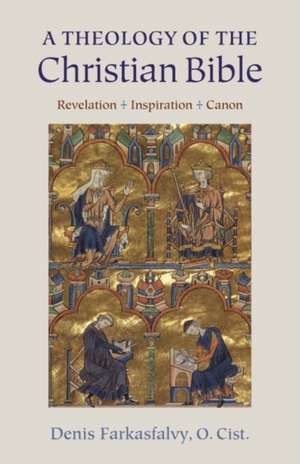A Theology of the Christian Bible
Autor Farkasfalvy, O. Cisten Limba Engleză Paperback – 30 iul 2018
Preț: 259.42 lei
Nou
Puncte Express: 389
Preț estimativ în valută:
49.64€ • 51.52$ • 41.50£
49.64€ • 51.52$ • 41.50£
Carte tipărită la comandă
Livrare economică 17-31 martie
Preluare comenzi: 021 569.72.76
Specificații
ISBN-13: 9780813230290
ISBN-10: 0813230292
Pagini: 277
Dimensiuni: 140 x 216 x 21 mm
Greutate: 0.34 kg
Editura: The Catholic University of America Press
ISBN-10: 0813230292
Pagini: 277
Dimensiuni: 140 x 216 x 21 mm
Greutate: 0.34 kg
Editura: The Catholic University of America Press
Descriere
Argues that divine revelation, the inspiration and canonization of Scripture should be viewed as ""sequentially linked movements"" of a single process wherein God reveals his Word in history and ensures permanent accessibility of revelation for his People, both of Israel and of the Church.
